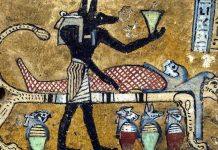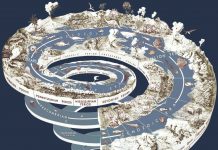What turns a mere piece of matter from being mere matter into an animated being? What gives certain special physical patterns in the universe the mysterious privilege of feeling sensations and having experiences?
D.R. Hofstadter
What is Parapsychology?
Parapsychology is the scientific and scholarly study of certain unusual events associated with human experience. These experiences have been called "psychic" for want of a better term.
A common misconception is that a parapsychologist is a psychic. Not so. Likewise, a child psychiatrist is not a child! Instead, a parapsychologist is a scientist or scholar who is seriously interested in the "paranormal." Unfortunately, many telephone books and on-line sites use "parapsychologist" as a synonym for psychic entertainer, mentalist, conjurer, astrologer, or psychic reader. This is an inappropriate use of the term "parapsychologist." The Parapsychological Association is an elected affiliate of the American Association for the Advancement of Science (AAAS), the largest scientific organization in the world. In contrast, organizations of psychic readers and mentalists are not members of the AAAS because they are entertainers, not scientists.
What does it mean to study psychic phenomena? A long-held, common-sense assumption is that the worlds of the subjective and objective are completely distinct, with no overlap. Subjective is "here, in the head," and objective is "there, out in the world." Parapsychology then is the study of phenomena suggesting that the assumption of a strict separation between subjective and objective may be wrong. Human experience suggests that some phenomena occasionally fall between the cracks, and are not purely subjective nor purely objective. From a scientific perspective, such phenomena are called "anomalous" because they are difficult to explain within current scientific models.
These anomalies fall into three general categories: ESP (terms are defined below), PK, and phenomena suggestive of survival after bodily death, including near-death experiences, apparitions, and reincarnation. Most parapsychologists today expect that further research will eventually explain these anomalies in scientific terms, although it is not clear whether they can be adequately understood without significant (indeed, probably revolutionary) expansions of the current state of scientific knowledge. Other researchers take the stance that existing scientific models of perception and memory are adequate to explain some or all parapsychological phenomena.
What is not parapsychology?
In spite of what the media often imply, parapsychology is not the study of anything considered weird or bizarre. Nor is parapsychology concerned with astrology, UFOs, searching for Bigfoot, paganism, vampires, alchemy, or witchcraft.
Many scientists have viewed parapsychology with great suspicion because the term has come to be associated with a huge variety of mysterious phenomena, fringe topics, and pseudoscience. Parapsychology is also often linked, again inappropriately, with a broad range of "psychic" entertainers, magicians, and so-called "paranormal investigators." In addition, some self-proclaimed "psychic practitioners" call themselves parapsychologists, but that is not what we do.
What do parapsychologists study?
Many feel that the strangest, and most interesting, aspect of parapsychological phenomena is that they do not appear to be limited by the known boundaries of space or time. In addition, they blur the sharp distinction usually made between mind and matter. In popular usage, the basic parapsychological phenomena are categorized as follows:
- Psi : A neutral term for parapsychological phenomena. Psi, psychic, and psychical are synonyms.
- Telepathy : Direct mind-to-mind communication.
- Precognition: Also called premonition. Obtaining information about future events, where the information could not be inferred through normal means. Many people report dreams that appear to be precognitive.
- Clairvoyance : Sometimes called remote viewing; obtaining information about events at remote locations, beyond the reach of the normal senses.
- ESP: Extra-sensory perception; a general term for obtaining information about events beyond the reach of the normal senses. This term subsumes telepathy, clairvoyance, and precognition.
- Psychokinesis : Also called PK; direct mental interaction with physical objects, animate or inanimate.
- Bio-PK : Direct mental interactions with living systems.
- NDE : Near death experience; an experience reported by those who were revived from nearly dying. Often refers to a core experience that includes feelings of peace, OBE, seeing lights and other phenomena.
- OBE : Out-of-body experience; the experience of feeling separated from the body, often accompanied by visual perceptions as though from above the body.
- Reincarnation: The belief that we live successive lives, with primarily evidence coming from the apparent recollections of previous lives by very small children.
- Haunting : Recurrent phenomena reported to occur in particular locations that include apparitions, sounds, movement of objects, and other effects.
- Poltergeist: Large-scale PK phenomena often attributed to spirits, but which are now thought to be due to a living person, frequently an adolescent.
Who is interested in Parapsychology?
- Physicists tend to be interested in parapsychology because of the implication that we have a gross misunderstanding about space and time and the transmission of energy and information.
- Biologists are interested because psi implies the existence of additional, unexplained methods of sensing the world.
- Psychologists are interested for what psi implies about the nature of perception and memory.
- Philosophers are interested because psi phenomena specifically address many age-old philosophical problems, including the role of the mind in the physical world, and the nature of the objective vs. the subjective.
- Theologians and the general public tend to be interested because personal psi experiences are often accompanied by feelings of profound, ineffable meaning. As a result, psi is thought by some to have "spiritual" implications.
From the materialistic perspective, one of the foundations of the current scientific worldview, human consciousness is nothing but an emergent product of the functioning of Brain, Body, and Nervous System (BBNS). That is, no matter how different mind may seem from solid stuff like bodies, it is generated solely by the electrochemical functioning of the BBNS, and so it is absolutely dependent on it. When the BBNS dies, so does consciousness. From this perspective, claims of survival of bodily death, or ghosts, or apparitions, must be due to wishful thinking. Furthermore, the limits of material functioning automatically determine the ultimate limits of mental functioning, thus ESP and PK appear to be impossible, given our current understanding about how the world works.
And yet, psi phenomena have occurred in all cultures throughout history, they continue to occur, and some of the reported phenomena have been persuasively verified using scientific methods. Because psi seems to transcend the assumed limits of material functioning, and therefore the BBNS, some interpret psi as supporting the idea that there is something more to mind than just the BBNS, that there is some sort of "soul," or the like.
This "non-physical" aspect, an aspect that does not seem to be as tightly bounded by space or time as present scientific models require, might survive bodily death. If so, there may be important truths contained in some spiritual ideas and practices. Of course, parapsychology is a very long way from being able to say that "the data shows that X" (insert your favorite religious group here) are specifically right about religious doctrines A, B, and C but dead wrong about dogmas P, Q and R.
We must emphasize that there is a big difference between simply noting that the findings of parapsychology may have implications for spiritual concepts, versus the idea that parapsychologists are driven by some hidden spiritual agenda. Some critics of parapsychology seem to believe that all parapsychologists have hidden religious motives, and that they are really out to prove the existence of the soul. This is no more true than claiming that all chemists really harbor secret ambitions about alchemy, and thus their real agenda is to transmute mercury into gold. The reasons why serious investigators are drawn to any discipline are as diverse as their backgrounds.


































